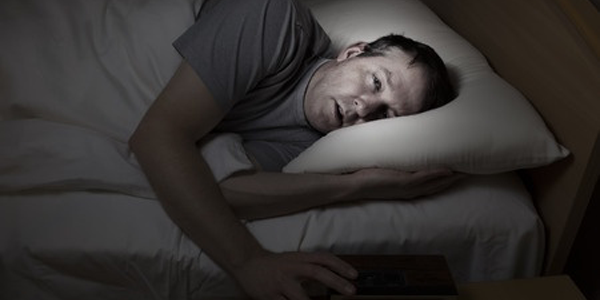It almost goes without saying that in order to help treat fatigue, you need to make sure you’re getting a good night’s rest.
There are multiple reasons why people do not sleep well.
Low Blood Sugar Insomnia
Sometimes the blood sugar dips down too low at night, and this triggers you to wake up. A small protein snack before bed can help resolve this. E
Eating a Paleo Diet or Ketogenic Diet rich in healthy fats, protein and low in carbs can also help. Consider a 2 week trial of one of these diets and see what benefits you feel.
Cortisol Insomnia
Cortisol is part of your circadian rhythm, or your normal sleep-wake cycle. Sometimes the cortisol is too high at night, and this makes it hard to fall asleep and/or stay asleep – especially for those who are under chronic stress.
Saliva cortisol testing can tell you if this is the root, underlying cause for your insomnia.
Melatonin Insomnia
Some people don’t produce enough melatonin. Melatonin is the sleep hormone made by the pineal gland in the brain. The pineal gland makes melatonin when it gets dark, and stops making melatonin when it gets light.
Low Melatonin Due to Bright Light
You may not produce adequate melatonin simply because you’re exposed to bright light for far too long into the evening. Bright light from television screens. Bright light from computer screens, tablets, and iPhones—these are worse than televisions because they’re actually brighter than television screens.
The remedy for this is to stop all computer, tablet, iPhone, and television use two hours before bedtime.
Use dimmers on your lights, and two hours before bed, dim the lights. Read a relaxing book, something that doesn’t require a lot of thinking, like light fiction. You might like to knit or crochet. You can do your journaling here.
Anything you can think of that does not require bright light or brain power, that’s what you should be doing at bedtime.
Low Melatonin Due to Low Serotonin
Melatonin is made from serotonin. When you do not produce adequate melatonin, it makes me wonder, “Why? Are you not making enough serotonin, either?”
The biggest source of serotonin production is the digestive tract. The digestive tract is responsible for upwards of 90 percent of the serotonin production for your body.
Oftentimes, poor sleep is a sign of low melatonin, which is because of low serotonin production, which is actually due to an underlying digestive problem. Like a chronic infection, food allergies, or leaky gut syndrome.
Many doctors will recommend melatonin for sleeping, and taking melatonin supplements can be helpful, but be aware that this is only a Band-Aid solution. You always want to find and fix the underlying cause.
Melatonin can be measured with a saliva test, and from there a functional medicine doctor can help you find and fix the underlying cause.
Make a promise to yourself starting today:
Stop feeling lousy…rotten…awful…crummy…miserable…terrible…crappy.
Find a good Functional Medicine doctor to help you get to the root cause of your health problems.
Like I always say:
Find the cause.
Fix the cause.
Feel normal again!

Dr. Carri Drzyzga, DC, ND – The Functional Medicine Doc
Find the Cause. Fix the Cause. Feel Normal Again!








